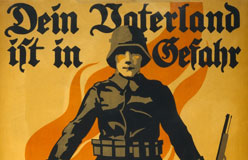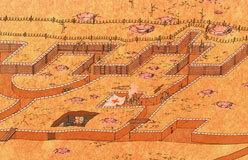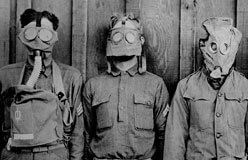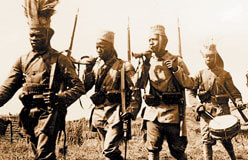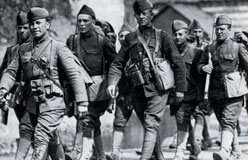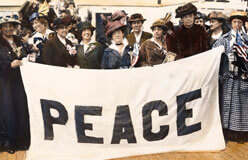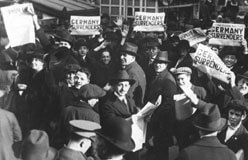People who lived through World War I called it the Great War.
But the only thing great about it was its size. In just over four years, more than 8 million men died fighting on three continents. Millions more were wounded. Five million civilians also died—from bombardment, disease, and hunger.
In one sense, the war started in 1914 with the assassination of Archduke Franz Ferdinand, heir to the throne of the Austro-Hungarian Empire. In a deeper sense, it began long before that. For years, many European nations had been embroiled in bitter competition for economic advantage, for colonial possessions, and for military superiority. For example, Britain was threatened by Germany’s growing naval power. The empires of Austria-Hungary and Ottoman Turkey feared uprisings from the countries they controlled.
Fear of attack by a rival nation led countries to form alliances—agreements that if one country were to be attacked, the others in the alliance would fight on its side. In the summer of 1914, Germany and Austria-Hungary had an alliance. France and Russia had one, too, and Britain had friendly relations with those two countries. Thus, one event could—and did—bring the five most powerful European nations into conflict.
